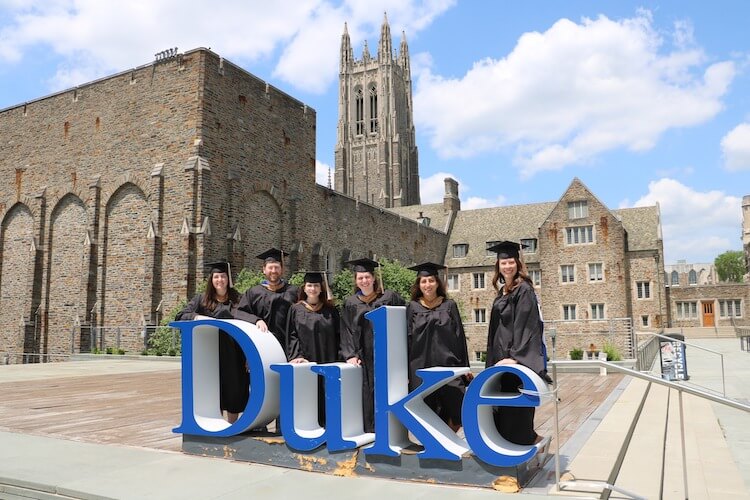A JD MBA program unites the general management teaching of an MBA with the foundational legal training of a Juris Doctor (JD) degree.
While most MBA programs in the US take two years to complete, and most JD degrees a further three, the majority of combined JD MBA programs take only four, allowing you to launch your desired career one year sooner.
Legal knowledge is useful in any business context, but JD MBA programs are especially suited to professionals interested in corporate law settings where business knowledge is necessary to excel, a key example being mergers and acquisitions.
Aspiring startup leaders should also consider a JD MBA, as the legal knowledge you will gain on the program can help you prepare your business plan and set up a legal entity for your entrepreneurial venture.
But before you can reap the benefits, you need to choose your program. Here are the top 10 JD-MBA programs* to consider with their fees**. We have also listed the average GMAT*** and Law School Admission Test (LSAT) required for admission.
10. IE Business School
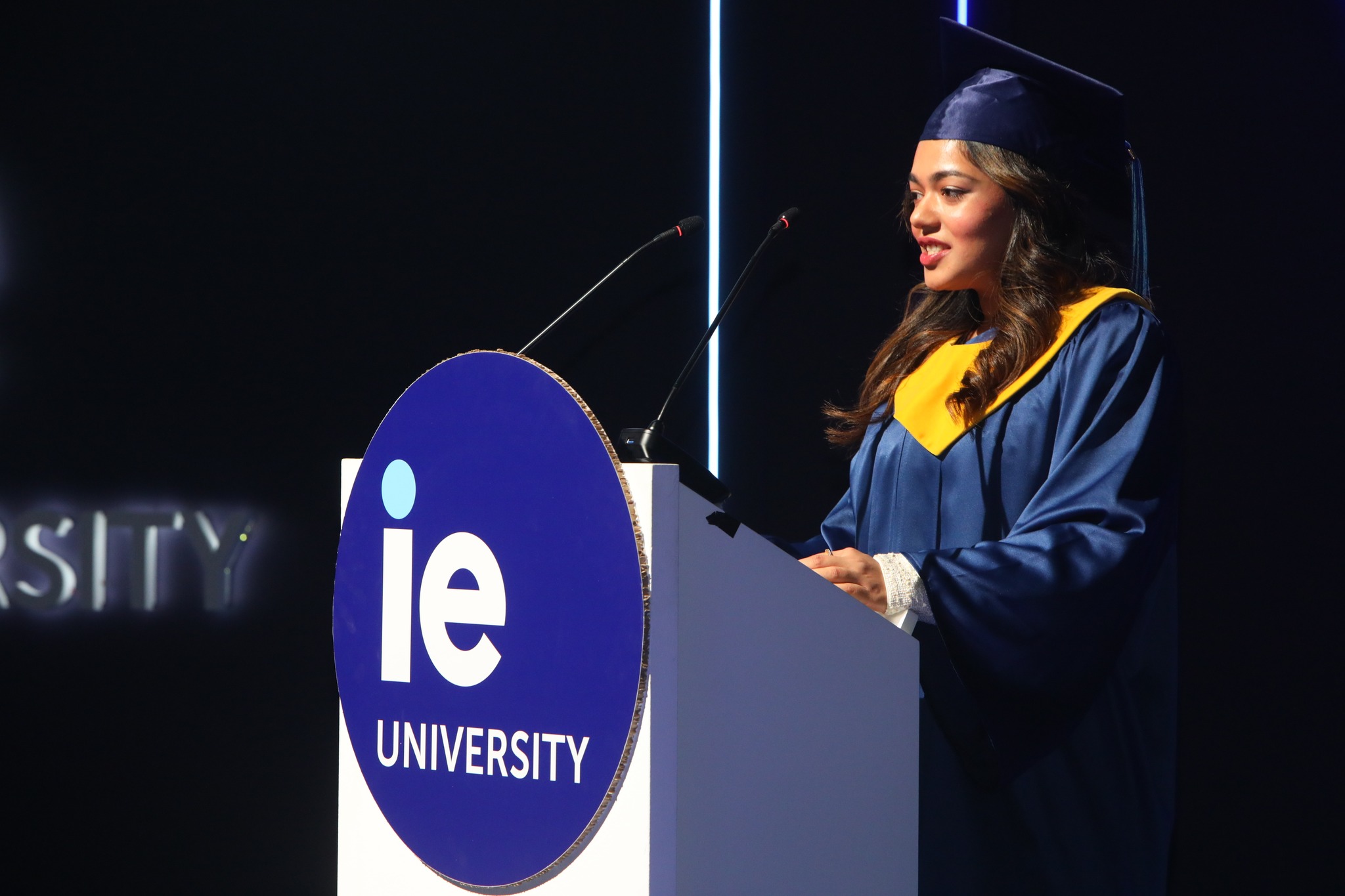 ©IE Business School via Facebook
©IE Business School via Facebook
Length: 19 months
Apply: Separately to each program
Median GMAT: 680 (615-625)*
Approx tuition: $86k (based on IMBA tuition)
*(latest reported score, GMAT Focus/11th Edition)
IE Business School’s Dual Degree International MBA and Master of Laws (LLM) prepares students for global careers in law and corporate strategy.
The International MBA covers finance, accounting, economics, and strategy, with flexible electives to develop leadership and career skills. The LLM builds on this, offering specializations in International Business Law, International Dispute Resolution, or Intellectual Property and Technology Law, with the option to earn a Postgraduate Diploma of Specialist.
Students gain practical experience through moot court competitions, exchanges with institutions like Northwestern University and King’s College, and projects led by top law firms, equipping them for roles in both law firms and corporate settings.
9. University of Chicago Booth School of Business
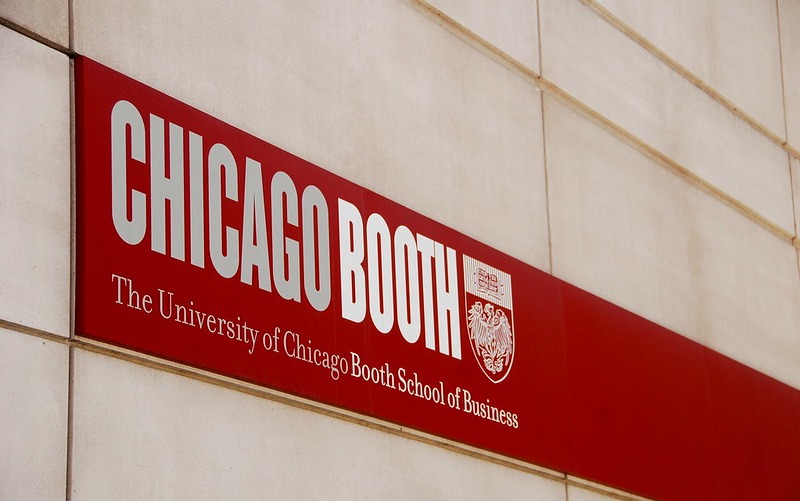
Length: 3 years, but also offered as 4 years for Booth Law and Management students
Apply: Using one joint application
Median GMAT: 730 (675-685)
Median LSAT: 173
Approx tuition: $368k
Chicago Booth offers students the chance to accelerate their JD MBA program while packing in significant work experience.
Law is the focus for students for their first year, next they will undertake a law or business internship alongside two business courses in the summer.
In their second year, they pursue a mix of business and law courses followed by another internship, before focusing solely on law in their third year.
Alongside studying law and business, Booth students benefit from an added emphasis on leadership teaching through the Leadership Effectiveness and Development (LEAD) class.
LEAD classes run throughout the MBA and JD portions of the program and focus on building students’ understanding of their leadership styles, challenges, and priorities, which helps them develop a personalized leadership development plan for their time on the program.
8. UC Berkeley Haas School of Business
 © UC Berkeley Haas via Facebook
© UC Berkeley Haas via Facebook
Length: 4 years
Apply: Separately to each program.
Average GMAT: 733 (675-685)
Median LSAT: 170
Tuition: $342k
In the JD-MBA at Berkeley Haas, students spend their first two years focusing on law and their third in business classes. The final year is spent on business electives and law modules.
Throughout the program, JD-MBA students have access to the Berkeley Center for Law and Business, which runs frequent events and initiatives to support learning around entrepreneurship, corporate social responsibility, capital markets, and mergers and acquisitions.
Examples of the groups available at the Center include Startup@BerkeleyLaw, whose programming focuses on issues facing early-stage companies, and the Women In Business Law Initiative, where students of all gender identities can connect with peers and mentors through meetings, conferences, forums, and lectures.
=6. Harvard Business School
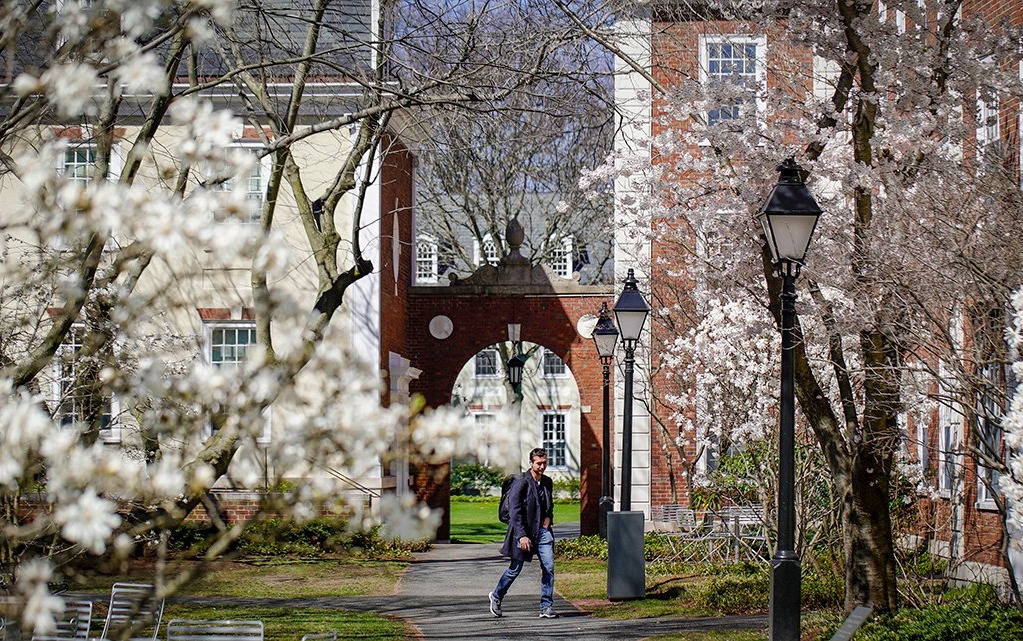
© Harvard Business School via Facebook
Length: 4 years
Apply: Separately to each program.
Median GMAT (for MBA program): 740 (685-695)
50th percentile LSAT: 174
Approx tuition: $315k
Harvard Law School and Harvard Business School are two of the most highly respected learning institutions in the world. The four-year JD MBA program brings together the core components of the curricula at both institutions. The program typically has ten students in each cohort.
The Harvard MBA, in particular, is known for its large class size of over 900 students. The class is broken up into more intimate sections of around 100 students. With this setup, students can create a network that is both broad and deep, with a large international cohort to mingle with and a smaller support system to study alongside.
As well as excellent academics, Harvard also has a strong record for entrepreneurship, with more than 50% of graduates creating ventures.
=6. Cornell University SC Johnson College of Business

© Cornell Johnson via Facebook
Length: 3 or 4 years
Apply: Separately to each program.
Median GMAT: 710 (655-665)
Median LSAT: 173
Approx tuition: $265k (three years)
Students on the JD-MBA at Cornell have the option to accelerate their learning with a three-year program, gaining an additional JD qualification with only a year more study than a traditional MBA degree.
On the three-year program at Cornell, students take a mix of law and business courses across all three years.
The four-year program is more traditional, with students focusing first on law, then business, then mixing the two programs in their final two years.
5. Duke Fuqua School of Business
@Duke Fuqua Facebook
Length: 3.5 or 4 years
Apply: Separately to each program.
Median GMAT: 660-760 (615-735)
Median LSAT: 170
Approx tuition: $310k
Duke offers students the chance to accelerate their JD/MBA program, and complete the joint program in just three-and-a-half years of study.
Duke’s JD/MBA program is the oldest of its Dual Degree programs, allowing students the opportunity to engage in cross-disciplinary study so you can better serve your business clients in a legal setting or to leverage your legal knowledge in a business setting.
Students can choose to spend their first year at the law school and their second year at Fuqua. In the third and fourth years they take classes from both. Or, choose the first two years at the law school followed by a year of study at Fuqua then two years of blended study. Students will take corresponding law or business summer internships through first to third year.
Duke boasts students will gain expertise in Contract Law, Mergers & Acquisitions, Venture Capital, and Corporate Litigation, which could help you find career opportunities in Law, Consulting, Venture Capital, and Investment Banking.
4. Northwestern University Kellogg School of Management

Length: 3 years
Apply: Using a joint application with a GMAT score. You will also need to register with the Law School Credential Assembly service (CAS).
Average GMAT: 733 (675-685)
Tuition: $326k
After one year of law study and one year of business teaching with internships each summer, JD-MBA students at Kellogg dive into a mix of electives with the law school as their home base.
As well as gaining a legal qualification, students can also choose to major in one of seven areas during their time on the MBA, selecting from accounting, economics, finance, marketing, operations, strategy, and managing organizations.
On top of this, they are also able to pursue global experiences through both the law school and the business school, which includes working on challenges for international organizations with the business school’s Global Lab.
Aspiring startup leaders have a slate of opportunities at Kellogg, for instance working at an incubator with the Venture Lab or providing provide legal and strategic consulting to small businesses with the university’s Entrepreneurship Law Center.
3. HEC Paris
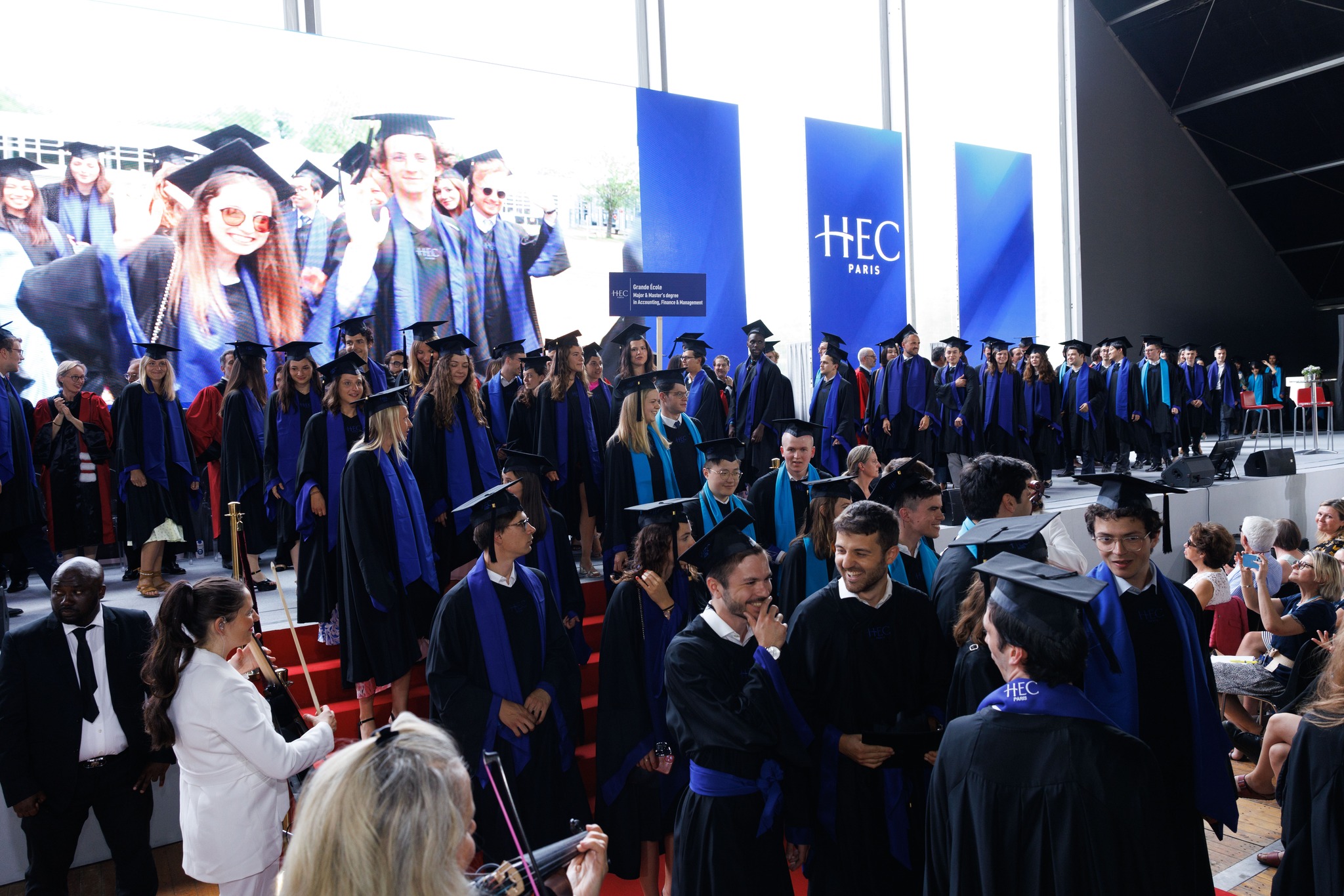
Length: 2 years
Apply: Separately to each program.
Average GMAT: 690 (635-643)*
Approx tuition: $184k
*(latest reported score)
HEC Paris is one of the FT MBA Ranking 2024 top European business schools, and offers a joint MBA and LLM. Applicants to the HEC course must already hold a law degree and have a minimum of three years of professional experience.
The program is delivered in partnership with Georgetown Law Center (Georgetown University) with students spending the first year of study covering core elements of HEC’s MBA in Paris. In second year, students move from the capital of France to Washington DC, the capital of the US to study at Georgetown Law. There are two possible routes with specialized or general LLM programs. Graduates receive both an MBA from HEC and LLM from Georgetown.
2. Columbia Business School
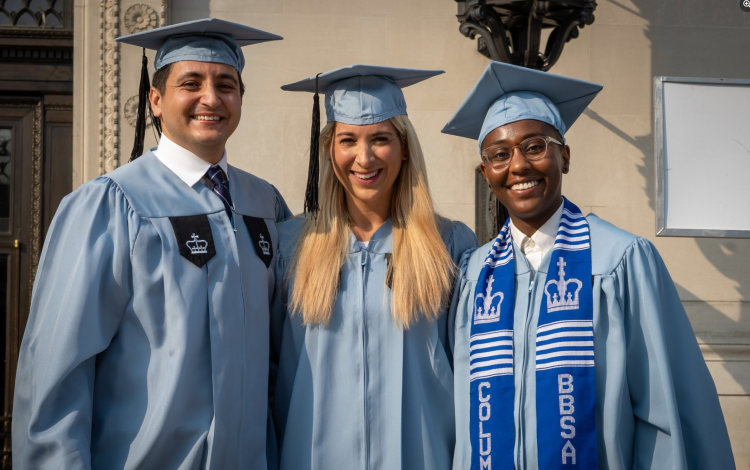
© Columbia Business School via Facebook
Length: 3 years
Apply: Using a joint application with a GMAT score. An additional LSAT score is optional.
Average GMAT: 732 (675-685)
Median LSAT: 173
Approx tuition: $350k
Given the accelerated structure of the Columbia Business School JD MBA, with one full year dedicated to each discipline and the final combining the two, it’s perhaps not surprising that there is less room for exploration than on the usual MBA degree.
However, Columbia makes sure that students still have opportunities to broaden their horizons. The school offers JD MBA students the option to ‘test out’ of core modules and take elective modules in their place, and all law students must complete a minimum of 40 hours’ pro bono service to graduate.
Finally, in addition to connecting with their cohorts across the two faculties, JD MBAs can also take advantage of the Richard Paul Richman Center for Business, Law, and Public Policy, where they can access a program of events specifically designed for students and alumni of the JD MBA program.
1. The Wharton School

© The Wharton School via Facebook
Length: 3 years (or 4 years for Wharton first-year law students)
Apply: Using a joint application during round 1 or 2. You must also register with LCAS.
Average GMAT: 732 (675-685)
Approx tuition: $360k
With a JD/MBA at the Wharton School, you get access to an accelerated program, and earn one of the world's most desirable MBAs.
The cross-disciplinary program features business courses designed specifically for the JD MBA program, which are undertaken in the summer after the first year of legal study. In the second and third years of the program, students take a combination of business and law courses plus a JD-MBA capstone course.
The JD/MBA cohort usually consists of 15 to 20 students. However, in the Wharton Class of 2026 there are 12 JD MBA students in a wider cohort that represents 65 countries. Women account for 47% of the MBA cohort.
Unsurprisingly for the top-ranked MBA program globally, post-graduation employment prospects are good. Compensation for the class of 2022 records a median base salary of $175,000 and sign-on and guaranteed bonuses of $30k.
*This list comprises the top 10 MBA programs ranked by the FT in 2025, that offer a JD MBA option ; **Cost figures for all the JD MBA programs are estimates of total cost using current quoted fees. Actual cost may differ ; *** GMAT scores refer to GMAT 10th Edition scores. Candidates submitting scores must now take GMAT 11th Edition (Focus) scores, which are listed in brackets.
This article was originally published in May 2022 and updated most recently in February 2025.



